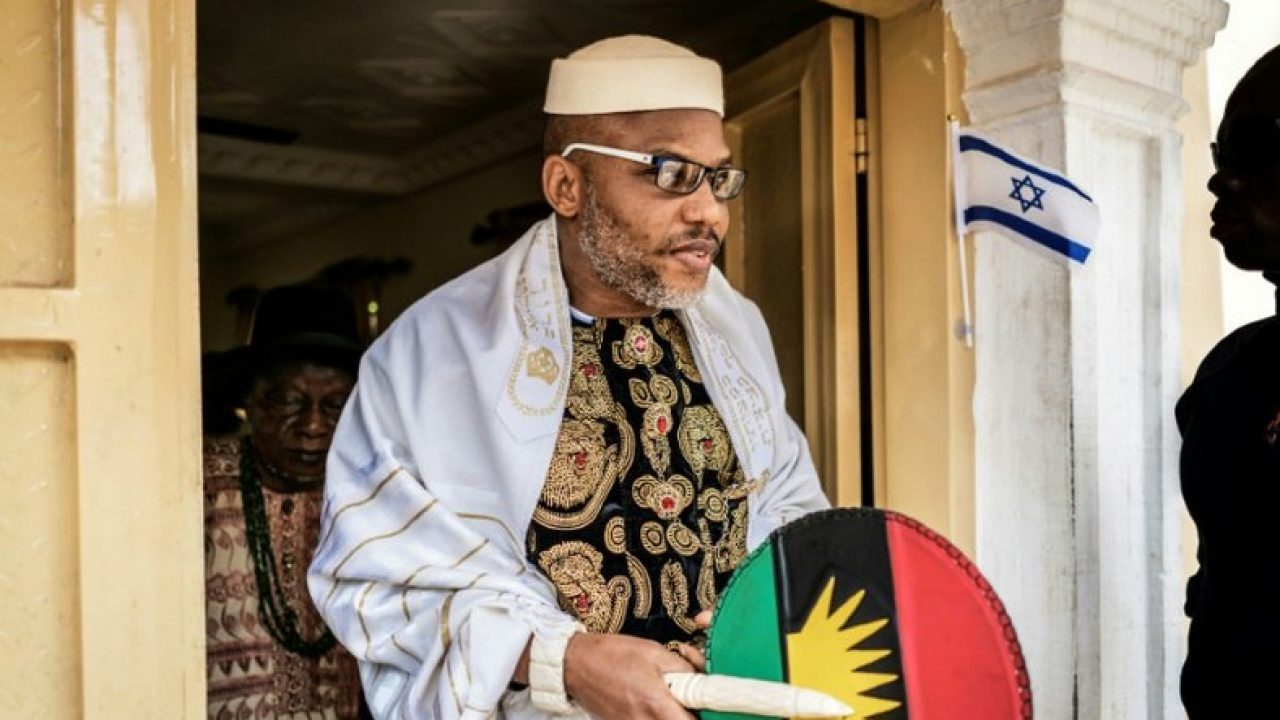ENUGU, Nigeria – A storm of controversy is brewing within the Indigenous People of Biafra, IPOB, over a handwritten letter by its leader, Nnamdi Kanu, which called for an end to all sit-at-homes in the southeast.
While Kanu’s family and his Special Counsel, Aloy Ejimakor, have confirmed the letter’s authenticity, Simon Ekpa, self-styled Prime Minister of Biafra, is vehemently disputing its validity.
On Friday, July 28, 2023, Aloy Ejimakor addressed a world press conference and publicly displayed the handwritten letter from Kanu, sending shockwaves across the IPOB’s ranks.
The sit-at-homes, which have been a powerful form of protest by the IPOB, were expected to end per the letter’s content.
However, Simon Ekpa was quick to challenge the authenticity of the letter. Via his verified Twitter handle, he condemned the situation and referred to the letter as a “fake letter from the pit of hell.” He wrote, “It is not only a joke but an insult taking too far that the leader of the Indigenous People Of Biafra is being misrepresented in this way.”
BRGIE @BiafraRGIE ANNOUNCEMENT
Our attention has been drawn to the fake letter from the pit of hell being paraded by @SaharaReporters and other Nigeria media claiming that Mazi Nnamdi Kanu wrote a letter.
It is not only a joke but an insult taking too far that the leader of the… pic.twitter.com/QiXgIuJAov— Simon Ekpa (@simon_ekpa) July 28, 2023
Ekpa went further, clarifying the stance of the Biafra Republic Government In Exile: “Mazi Nnamdi Kanu must be released and he must address Biafrans from Finland. That is the condition of the Prime Minister of Biafra and the Biafra Republic Government In Exile.”
The situation was further complicated when Kanu’s younger brother, Prince Emma Kanu, stepped forward to confirm that the letter was indeed written by Nnamdi Kanu.
Emma, who had recently visited his brother at the DSS detention, countered the Prime Minister’s assertion, stating unequivocally, “Anybody doubting it is insane. I visited him last week, and he has re-iterated that several times. Nnamdi Kanu is not interested in killing or suffering people but in the freedom of his people. The letter is his handwriting, and I can confirm it.”
The conflicting statements have ignited debate and confusion within the IPOB community and have raised concerns about potential fractures within the movement.
The letter’s authenticity and the divergent interpretations of its content have turned what could have been a unifying announcement into a divisive issue.
The differing reactions to the letter underscore the complex dynamics and ongoing tensions within the movement for Biafran independence.
The situation also highlights the importance of Nnamdi Kanu’s leadership in unifying various factions and interests within the IPOB.
As the situation continues to unfold, the stakes for the IPOB and the broader movement for Biafran independence remain high.
Resolving this internal dispute may have far-reaching implications for the movement’s cohesion, strategy, and future direction.
The spotlight will remain on the key players involved as they navigate the delicate balance between unity, transparency, and the deeply held convictions defining the struggle for Biafra.







